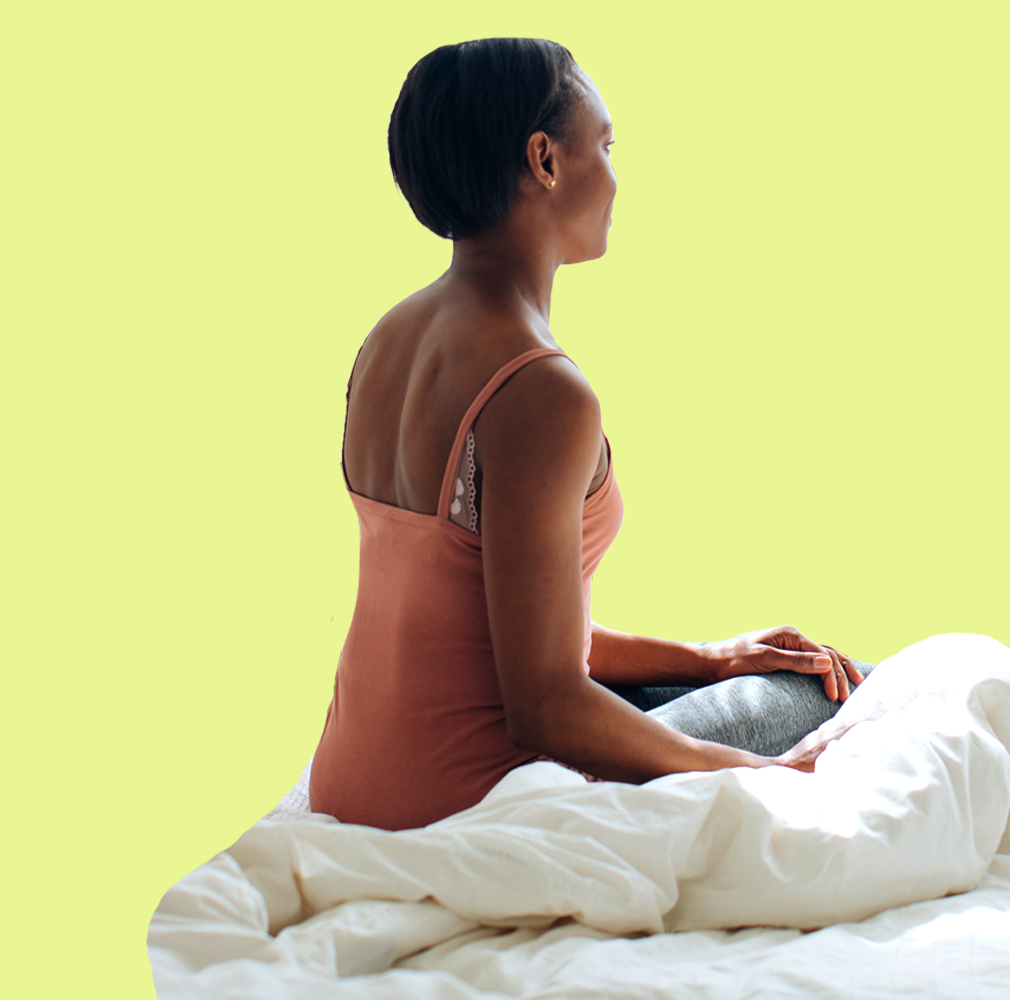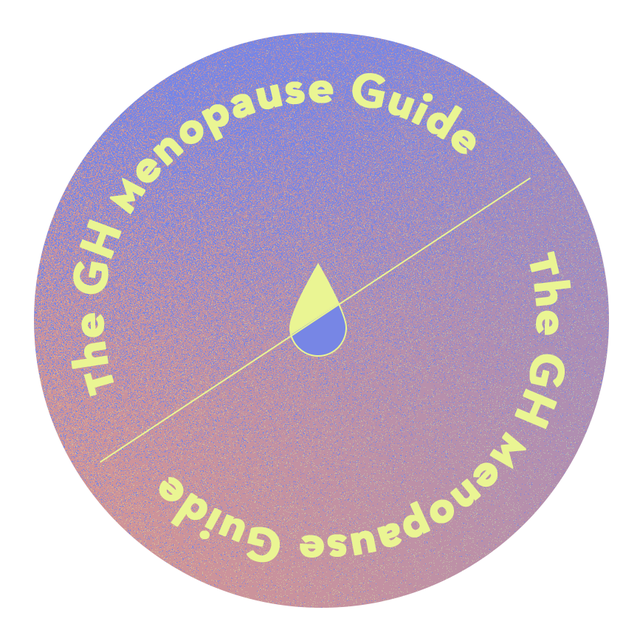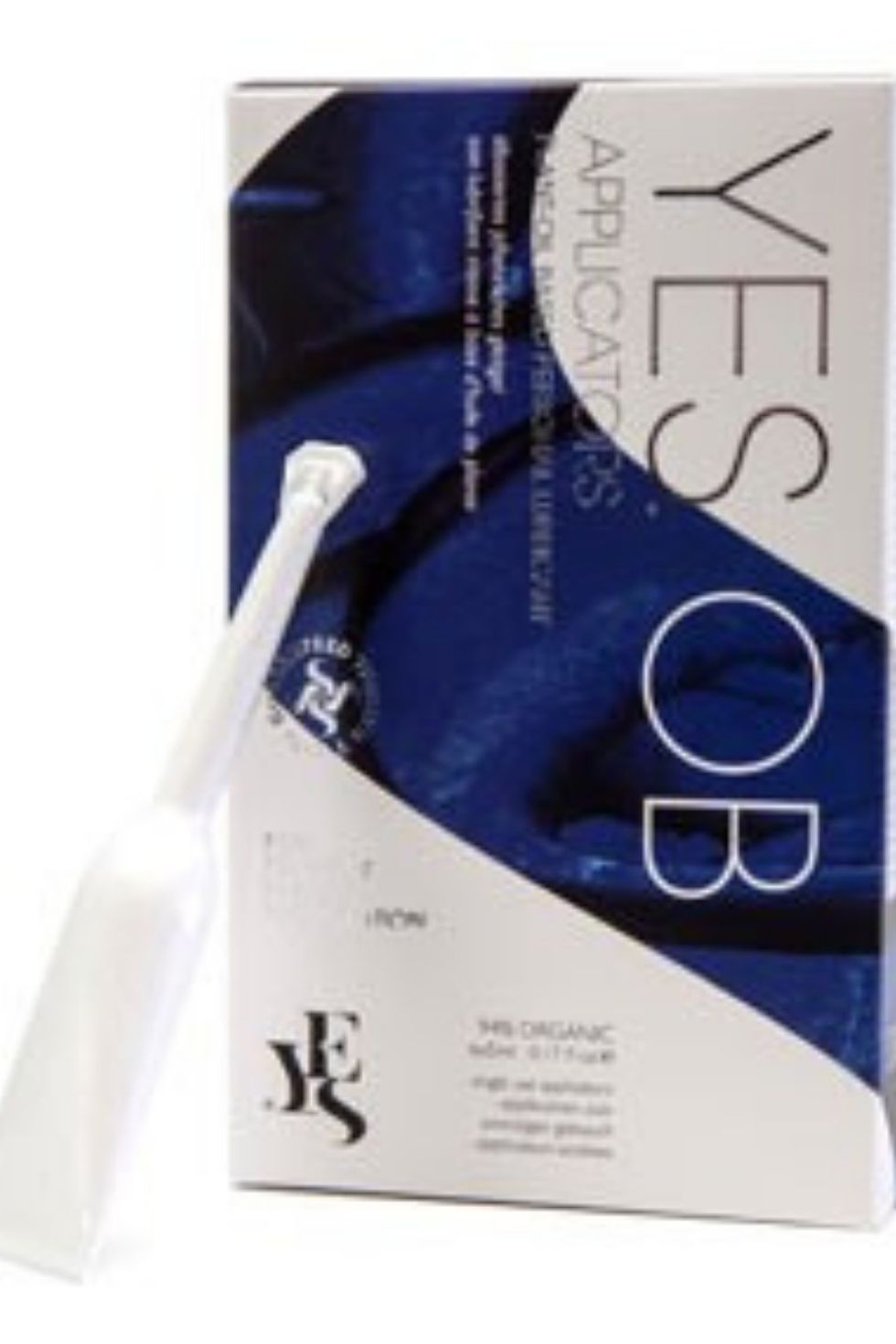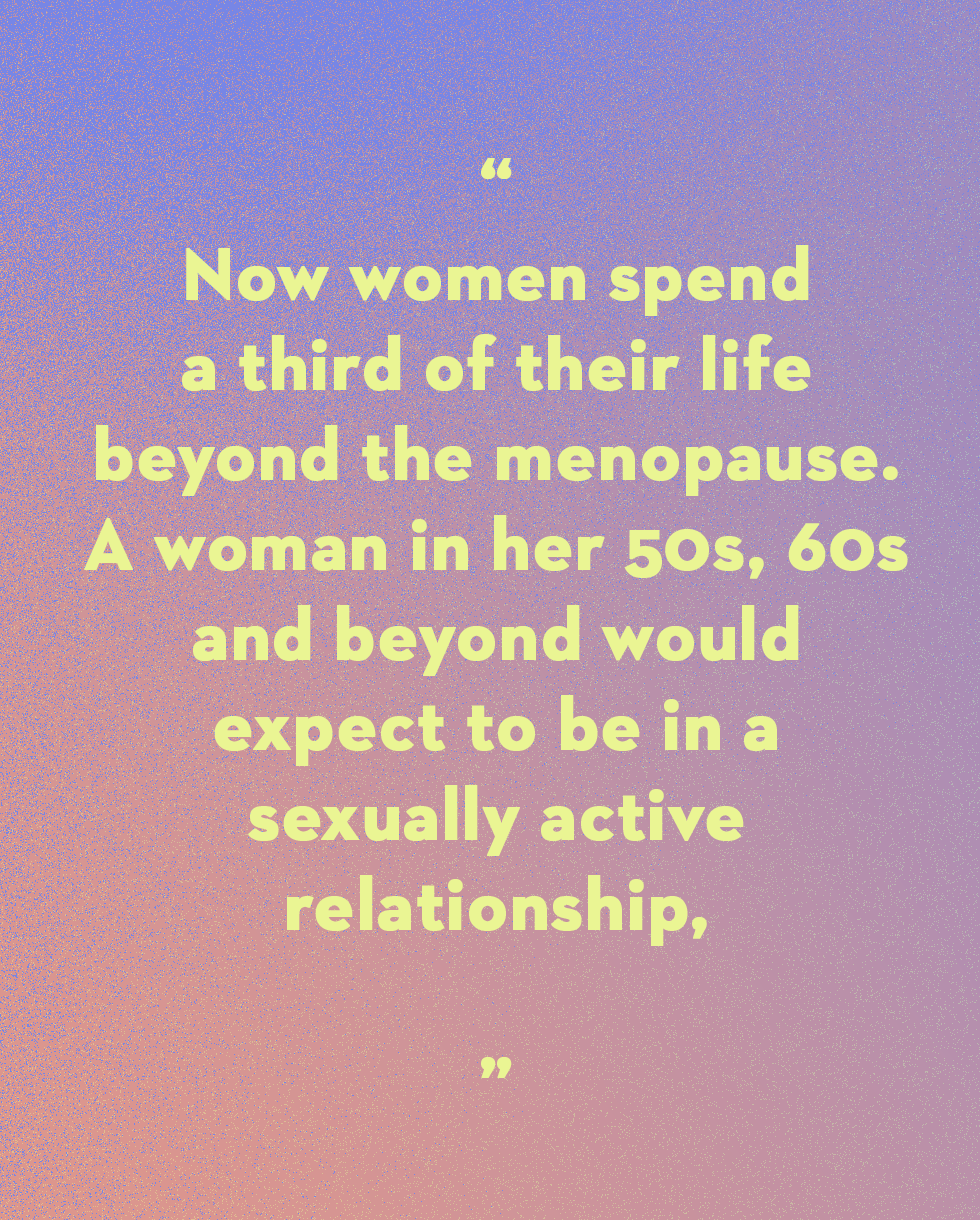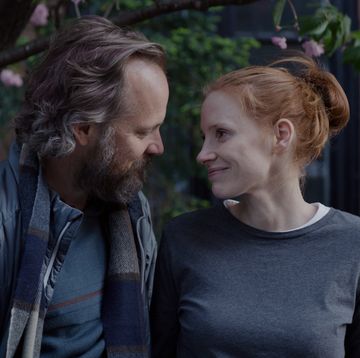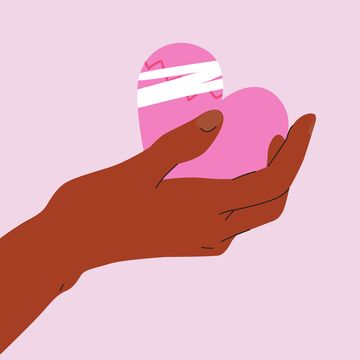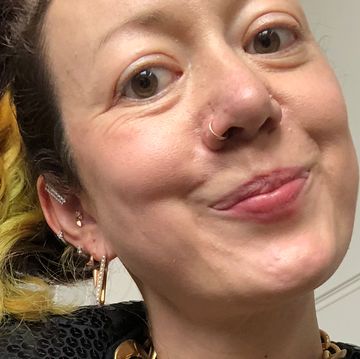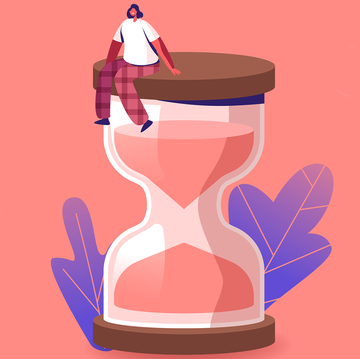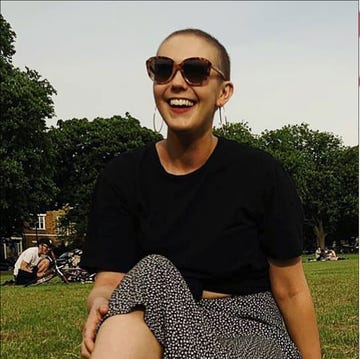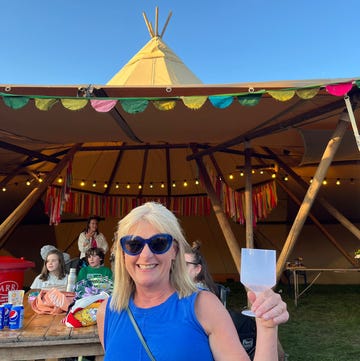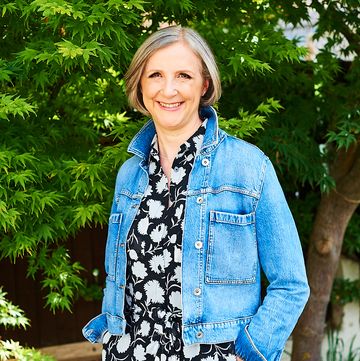The menopause brings a whole array of challenges from hot flushes to difficulty sleeping, but some of the side effects with perhaps more of a stigma attached than most others are those related to sex and intimacy. It’s common to experience vaginal dryness and discomfort during sex as well as a reduced sex drive when you’re going through the menopause, yet for many people, the thought of talking to their GP, friends, or even their sexual partner isn’t always comfortable.
The menopause can indeed impact on a person's sex life but from Hormone Replacement Therapy to Cognitive Behavioural Therapy and more simple solutions like a sensitive lubricant, there’s lots out there to help.
Here, Dr Anne Henderson, Health & Her guest expert, Consultant Gynaecologist and menopause specialist, talks us through the reasons behind common menopausal sex issues and gives her advice for dealing with them.
“Low libido is caused by a combination of physical and emotional reasons but the physical problems [vaginal dryness and pain during sex] virtually all stem from declining oestrogen levels, not just in the menopause but in perimenopause and post-menopause. Unless addressed with treatment, sexual problems can become the new norm, they don’t go away,” Anne said.
Pain and discomfort during sex
Pain and discomfort is certainly one of the commonest physical problems, yet people don’t always feel able to talk about it.
“The problem with this issue is there’s still stigma and embarrassment and whilst women may be happy to joke about flushes and sweats with friends and even their GP, it’s harder for most of them to bring up issues with sex. One of the first steps here is recognition and the ability to seek help. Once a woman is aware that’s a menopausal problem and comes forward for help, there’s lots that can be done,” Anne said.
What can be done?
“There are numerous routes of action but the most common one women would ask for is Hormone Replacement Therapy because that’s replacing the hormone that’s missing. Lack of oestrogen is the cause of the dryness, the reduced libido, the bladder irritation, so replacing the missing oestrogen is an obvious step. Women can go down the route of having local oestrogen which is given to the vagina and treats just the vaginal and vulval discomfort and bladder problems. Other women ought to go for systemic HRT that’s taken into the body’s system and helps the vaginal problems but also helps to deal with flushes and sweats, anxiety, mood problems and lack of sleep and tiredness.
“Some women may also benefit from testosterone, the male hormone, which is primarily for energy and libido. Other women might prefer to look at non-medical treatment like lubricants,” Anne added.
“The only range that specialists like myself recommend is Yes Yes Yes, which is fantastic, organic, paraben-free, glycerin-free and pH-balanced. They’re the only vaginal products that tick all those boxes, others have potential irritants for the menopausal vagina. They do an oil-based lubricant and a vaginal moisturiser for daily use,” Anne said.
Reduced sex drive
“In my practice I think if somebody doesn’t have a problem with libido, that’s much more unusual than somebody who does. It’s a normal reaction,” Anne said.
Despite this, there’s still stigma attached to it.
“If there’s been good sex within a relationship and then women hit peri-menopause, sexual interest is often the first thing to go and unfortunately many women feel there’s a blame attached to that. They feel guilty and their partner may blame them because they’re still very keen to have sex,” she said.
The reason for reduced sex drive is complex, but the two main components are hormonal and circumstantial or life events.
“Menopausal women are seen as the sandwich generation, they’ve often got elderly parents who might not be in good health, they’re much more likely to be working full-time nowadays whereas a generation or two ago women started to retire at 55. Plus, they may have teenage children and children in their 20s who’ve ‘boomeranged’ back home. Women’s lives have changed immeasurably in the past generation and all the psychosexual studies show that sexual desire in a woman is not driven simply by hormones as it is with men, it’s driven by many things - her health, her family, her work, stress levels. I think that’s a major factor for women.
“The hormonal reason is the declining levels of oestrogen and testosterone, both of which decline rapidly in the late 40s onwards and at the time of the menopause, unless a woman’s on HRT, her oestrogen level will be virtually unrecordable. “
What can be done?
“There’s no point giving someone HRT if she’s still being over-burdened at home and sleeping less than six hours a night because she’s got so many commitments. In that case there needs to be a frank discussion and she needs to get help from family members, friends or however she can,” Anne said.
“As far as hormone replacement is concerned, there’s no doubt that can help libido – vaginal dryness and discomfort unsurprisingly can trigger reduced sexual desire so if you improve that, sex is much more comfortable and clearly libido will improve. If somebody wants HRT that’s something they would discuss with their GP or see a specialist like myself to discuss.
“Some women also need additional counselling, sometimes I recommend my patients have Cognitive Behavioural Therapy. If they have ingrained problems some women do need highly specialised psychosexual counselling which addresses other issues beyond my remit.”
Generational changes
Anne believes it’s important to take into account how much our lives have changed and look at why that’s relevant to this issue.
“A generation, certainly two generations ago, women wouldn’t expect to be sexually active at 60 and beyond - their life expectancy was much less. Now women spend a third of their life beyond the menopause. A woman in her 50s, 60s and beyond would expect to be in a sexually active relationship," she said.
“I think it’s about addressing that and helping women understand that they’re trying to fight nature in a way because the menopause is nature saying ‘You don’t have oestrogen, you’re not fertile, you’re not sexually active’. Yet that’s not the new norm.
“Having discussion and creating awareness around that and women knowing they aren’t alone” is crucial, according to Anne.
Talking about opening up treatment opportunities, Anne said: “It’s about linking what can be done to help women with what they want to do.
“That’s not going to happen overnight [but if] the next generation expects to go on HRT at 50 then we probably won’t be having this discussion about so many problems with libido and painful intercourse. I think it’s something that’s evolving.”
Like this article? Sign up to our newsletter to get more articles like this delivered straight to your inbox.
In need of some positivity or not able to make it to the shops? Enjoy Good Housekeeping delivered directly to your door every month! Subscribe to Good Housekeeping magazine now.
